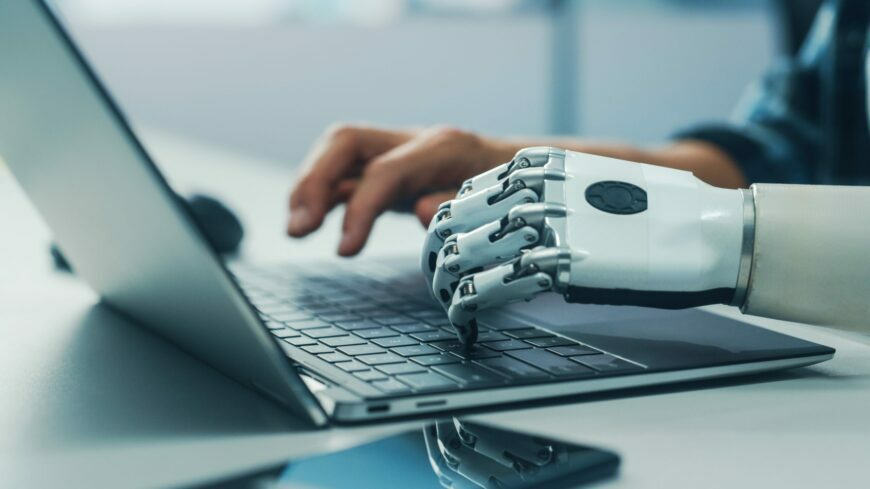AI and the Gig Economy Transformation
By Mahnoor Imran & ChatGPT | 24 March 2023

The gig economy has experienced significant growth over the last decade, and it is expected to continue to expand in the coming years. According to Statista, the gross volume of the gig economy is projected to reach USD 455 billion in 2023. As such, current and future advances in artificial intelligence (AI) technology have the potential to transform the gig economy, creating both opportunities and challenges for workers, businesses, and policymakers. AI will impact the gig economy in several ways.
Firstly, it will lead to increased automation of tasks currently performed by human workers in the gig economy. Platforms such as Uber and Lyft have already started to experiment with self-driving cars, which could eventually replace human drivers altogether. Similarly, chatbots and virtual assistants powered by AI such as Microsoft’s Bing Chatbot could take over tasks such as customer service and administrative support, freeing up human workers to focus on more complex and creative work. While increased automation could lead to more efficient and cost-effective operations for gig economy businesses, it could also have significant implications for workers. Many workers in the gig economy rely on these jobs for income, and automation could lead to job losses and displacement. Governments and businesses will need to work together to ensure that workers are trained to transition to new roles and industries as the gig economy evolves.
Secondly, AI will enable gig economy businesses to better match workers with tasks and projects. Currently, workers in the gig economy often face uncertainty around finding work, as they must compete with other workers for jobs on platforms such as Upwork and Freelancer. AI-powered matching algorithms could help to alleviate this problem by connecting workers with tasks and projects that match their skills and experience.AI could also help to reduce bias and discrimination in the gig economy by making the matching process more objective and transparent. However, there are also concerns around the potential for AI to perpetuate existing biases if the algorithms are not designed and implemented carefully. Already AI models have been proved to harbor biases related to ethnicity and gender.
Thirdly, AI will enable gig economy businesses to provide more personalized and targeted services to customers. For example, AI-powered recommendation systems could help platforms such as Airbnb and TaskRabbit to suggest relevant services and providers to customers based on their preferences and previous interactions. This could lead to increased customer satisfaction and loyalty, as well as higher earnings for workers who are able to provide high-quality services. However, there are also concerns around the potential for these systems to be used to manipulate customers and workers, and to further entrench existing power imbalances in the gig economy.
Finally, AI could enable gig economy businesses to better manage and coordinate their operations. For example, AI-powered scheduling systems could help to optimize worker schedules and reduce inefficiencies in the allocation of tasks and projects. Similarly, AI could help to improve communication and collaboration between workers and businesses, leading to more effective and efficient operations.However, there are also concerns around the potential for AI to be used to monitor and control workers in the gig economy. Some worry that the increased use of AI could lead to a dehumanization of work, with workers treated as mere cogs in a machine rather than as individuals with unique skills and experiences.
In conclusion, AI has the potential to transform the global gig economy in a variety of ways, from increasing automation to improving matching algorithms and providing more personalized services to customers. While there are many opportunities for businesses and workers to benefit from these changes, there are also significant challenges and risks that must be addressed. Governments and businesses must work together to ensure that the benefits of AI are shared fairly, and that workers are able to adapt to new roles and industries as the gig economy evolves. In order to do this, there needs to be comprehensive dialogue on the future of the gig economy and how worker’s rights can be protected while also realizing the gains from advances in AI. Doing so would ensure that the gig economy remains a vibrant and dynamic part of the global system, powered by the latest advances in AI technology.




